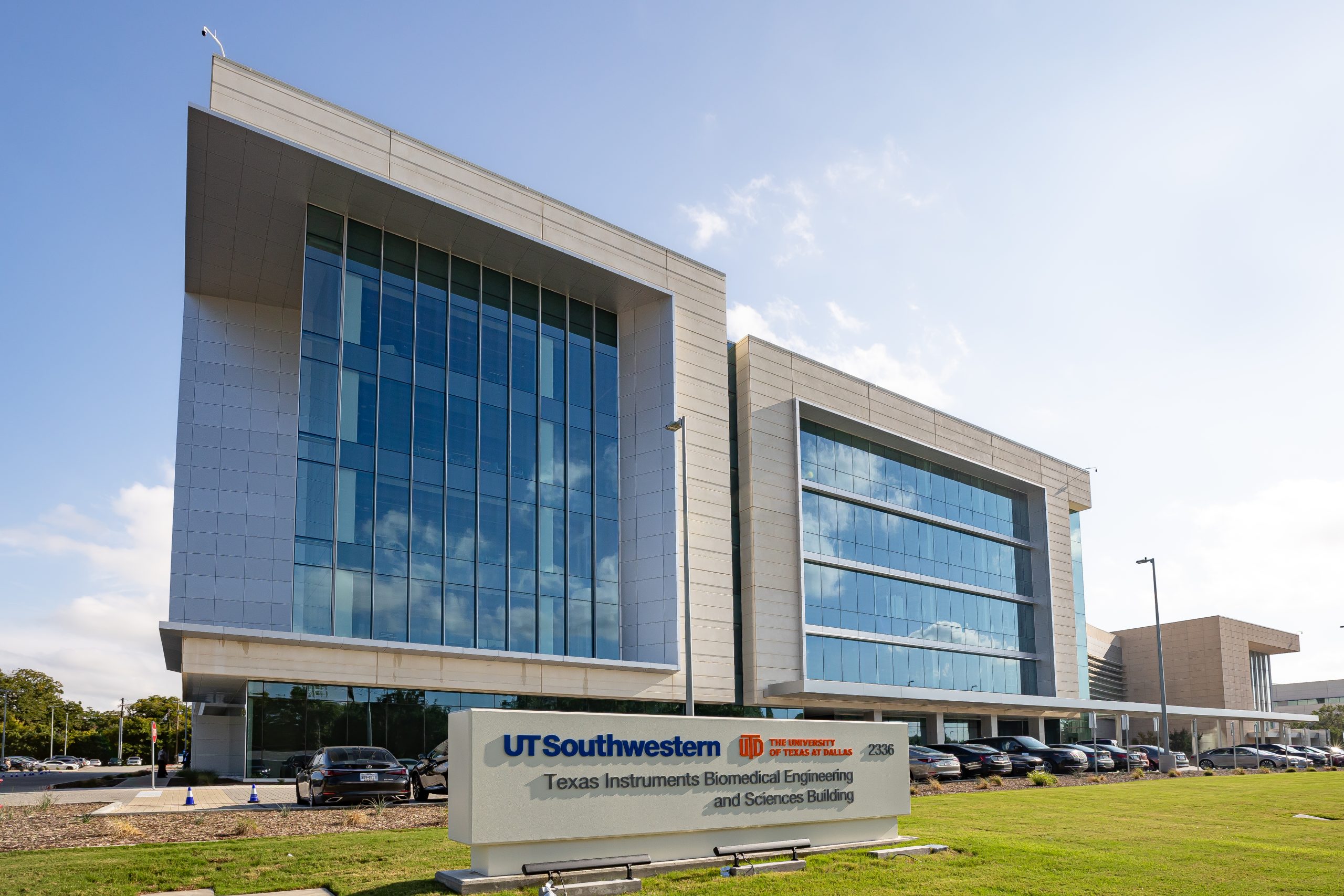Portraits of Impact

Dr. Zhengpeng Qin
Researchers Seek Collaborative Brain Cancer Treatment
Dr. Zhengpeng Qin is one of seven researchers from The University of Texas at Dallas moving their labs from the University’s Richardson campus to the recently opened Texas Instruments Biomedical Sciences and Engineering Building at UT Southwestern Medical Center. The move to the joint facility will facilitate closer collaboration between Qin and UT Southwestern physicians, with whom he is working to develop a new treatment for brain diseases like glioblastoma, the most common form of brain cancer.
“Our new lab will give us the opportunity to deepen our collaborations with our UT Southwestern partners to put medicine in the brain,” said Qin, associate professor of mechanical engineering and Fellow, Eugene McDermott Distinguished Professor. “Moving into the new building will allow us to engage with clinical partners and perform studies that were previously challenging to do.”

Qin’s team of researchers in the NanoBioengineering Laboratory at UT Dallas are working on nanotechnology-based approaches to understanding the brain, delivering medicine to the brain and diagnosing infectious diseases. His partnership with colleagues at UT Southwestern aims at advancing a promising new technique to deliver medicine through the blood-brain barrier.
Since joining the faculty of the Erik Jonsson School of Engineering and Computer Science in 2015, Qin has used mechanical engineering to solve challenges in medicine. In addition to his appointment in the Department of Mechanical Engineering, Qin is an affiliated faculty member in the Department of Bioengineering and an adjunct faculty member at UT Southwestern Medical Center’s Department of Surgery. He is also a founding member of UT Dallas’ Center for Advanced Pain Studies.
The resources and funding provided by endowed professorships at UT Dallas and the creation of the Texas Instruments Biomedical Engineering and Sciences Building support life-changing research and technological innovation. The $120 million, 150,1square-foot facility was made possible in part by a $15 million gift from Texas Instruments, alongside $2 million from the Eugene McDermott Foundation and a $1 million grant from Lyda Hill Philanthropies, which also established the Lyda Hill Biomedical Innovation fund with a $250,000 grant to stimulate research in the new building. Qin is one of the first two researchers to receive support from the fund.